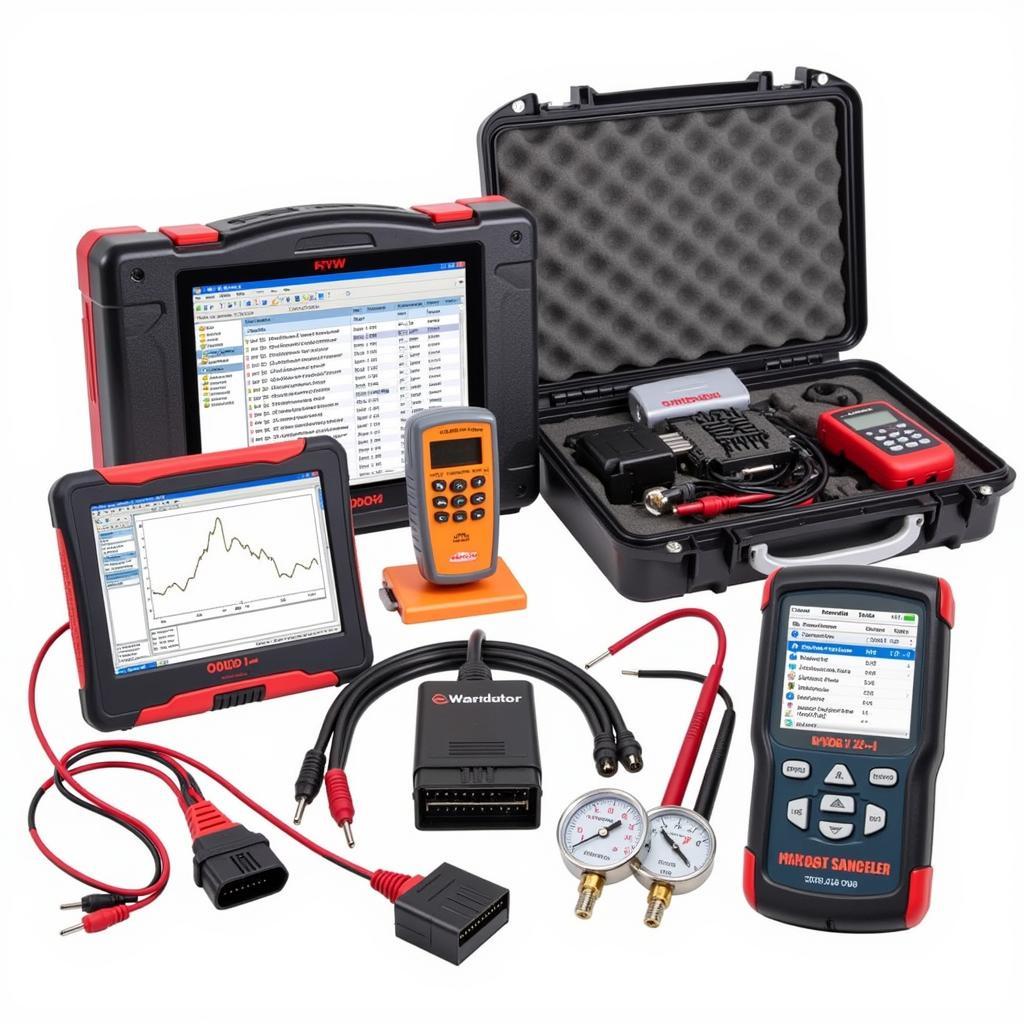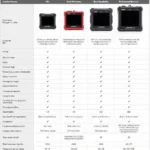Modern vehicles are technological marvels, packed with sophisticated electronics and computer systems that control everything from engine performance to safety features. At the heart of this intricate network lies the car diagnostic system, a critical component that monitors your vehicle’s health and alerts you to potential issues. Understanding car diagnostics is crucial for any car owner, empowering you to make informed decisions about your vehicle’s maintenance and repair.
What are Car Diagnostics?
Car diagnostics refer to the process of identifying and troubleshooting problems within a vehicle’s various systems. This is primarily achieved through a standardized system known as On-Board Diagnostics II (OBD-II), which has been mandatory in all vehicles sold in the United States since 1996.
The OBD-II system acts as your car’s internal communication network, constantly monitoring sensors and components for malfunctions. When a problem is detected, the system stores a Diagnostic Trouble Code (DTC) in its memory, providing a valuable clue for technicians to pinpoint the root cause of the issue.
How Car Diagnostics Work
The OBD-II system relies on a network of sensors strategically placed throughout your vehicle. These sensors gather data on vital parameters such as:
- Engine RPM (Revolutions Per Minute)
- Airflow and Fuel Pressure
- Oxygen Sensor Readings
- Coolant Temperature
- Transmission Fluid Pressure
This data is constantly analyzed by the vehicle’s Engine Control Unit (ECU), a sophisticated computer that acts as the brain of your car. When the ECU detects a reading outside the predefined acceptable range, it triggers the Check Engine light on your dashboard and stores a corresponding DTC in its memory.
The Importance of Car Diagnostics
Car diagnostics have revolutionized the way we maintain and repair vehicles. Here’s why they are essential:
- Early Problem Detection: Car diagnostics can detect issues in their early stages, often before they escalate into major problems. This proactive approach can save you time, money, and potential headaches down the road.
- Accurate Diagnosis: By providing specific DTCs, car diagnostics enable technicians to pinpoint the root cause of a problem quickly and efficiently. This eliminates guesswork and unnecessary repairs, ensuring you receive the most effective solution.
- Improved Safety: Many safety-critical systems, such as airbags and anti-lock brakes, are monitored by the OBD-II system. Regular car diagnostics can help identify potential safety hazards and ensure these systems are functioning correctly.
- Increased Resale Value: A well-maintained vehicle with a clean diagnostic history is more appealing to potential buyers. Regular car diagnostics can contribute to a higher resale value for your car.
Types of Car Diagnostic Tools
A range of diagnostic tools is available to access and interpret the data stored within your vehicle’s OBD-II system. These tools vary in complexity and functionality, catering to both professional mechanics and DIY enthusiasts.
- Basic OBD-II Scanners: These affordable and user-friendly devices can read and clear basic DTCs. They are an excellent option for car owners who want to perform simple diagnostics at home.
- Advanced Scan Tools: Professional-grade scan tools offer a comprehensive suite of features, including live data streaming, bi-directional control, and access to manufacturer-specific codes. These tools are indispensable for experienced technicians diagnosing complex issues.
Common Car Diagnostic Tests
Car diagnostics encompass a wide range of tests designed to evaluate the health of various vehicle systems. Some of the most common tests include:
-
Engine Performance Diagnostics: These tests analyze engine parameters such as fuel pressure, ignition timing, and emissions to identify issues affecting performance and efficiency.
-
Transmission Diagnostics: These tests evaluate the operation of the transmission system, including fluid pressure, shift solenoids, and clutch engagement.
-
ABS Diagnostics: These tests assess the functionality of the Anti-lock Braking System (ABS), including wheel speed sensors, hydraulic control units, and brake pressure.
-
Airbag Diagnostics: These tests check the integrity of the airbag system, including sensors, control modules, and deployment circuits.
Conclusion
Car diagnostics are an indispensable aspect of modern vehicle maintenance and repair. Understanding the basics of car diagnostics can empower you to take proactive steps in caring for your car, ensuring it runs smoothly and safely for years to come. Whether you choose to invest in a basic OBD-II scanner for DIY diagnostics or rely on the expertise of a qualified technician, regular car diagnostics are essential for maximizing the lifespan and performance of your vehicle.
FAQs
Q: How often should I get my car diagnostics checked?
A: It is generally recommended to have your car diagnostics checked at least once a year or every 12,000 miles, whichever comes first. However, if you notice any unusual warning lights on your dashboard, experience performance issues, or suspect a problem, it’s best to have your vehicle diagnosed promptly.
Q: Can I diagnose car problems myself?
A: Yes, basic OBD-II scanners are readily available and user-friendly, allowing car owners to read and clear basic DTCs. However, for more complex issues or if you’re uncomfortable working on your car, it’s always best to consult a qualified mechanic.
Q: What does it mean when my Check Engine light is flashing?
A: A flashing Check Engine light typically indicates a more serious problem that requires immediate attention. This could signify a severe engine misfire or a problem with the emissions system. It’s crucial to have your vehicle inspected by a mechanic as soon as possible to prevent further damage.
Q: Can car diagnostics reset my car’s computer?
A: Some diagnostic tools have the capability to reset the car’s computer, clearing DTCs and resetting learned adaptations. However, this should only be done by a qualified technician after the underlying problem has been properly diagnosed and repaired.
Q: Are car diagnostics covered under warranty?
A: Warranty coverage for car diagnostics varies depending on the vehicle manufacturer and the specific warranty terms. It’s best to consult your vehicle’s warranty documentation or contact the manufacturer for clarification.
Need help with your car diagnostics? Our team of expert technicians is here to assist you 24/7. Contact us via WhatsApp: +1(641)206-8880 or Email: [email protected] for prompt and reliable support.


